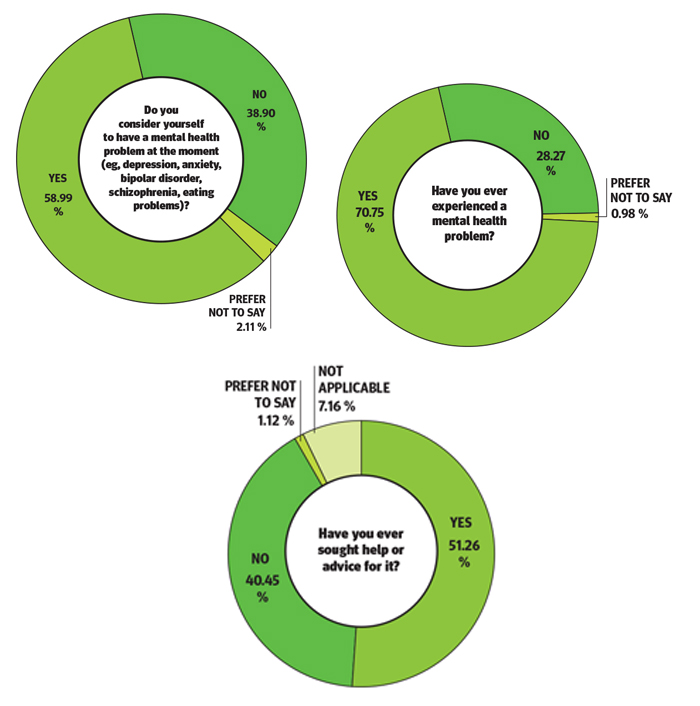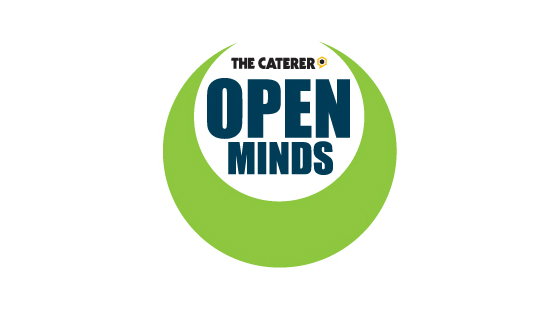Mental health in hospitality: The Caterer investigates
Following World Mental Health Day this week, Katherine Price looks at the results of a survey conducted by The Caterer to examine the problems hospitality workers have with their mental health and how they feel they couldbe better supported
The hospitality industry was shaken on 8 June when it was announced that American chef, author and television personality Anthony Bourdain had taken his own life. Bourdain had always spoken candidly about his mental health and problems with addiction, and his death led to others sharing their own stories of mental illness.
According to mental health charity Mind, approximately one in four people in the UK will experience a mental health problem each year. Mind also says that while the overall number of people with mental health problems has not changed significantly in recent years, it appears that how people cope with them is getting worse, as the number of people who self-harm or have suicidal thoughts is increasing.
A survey of London chefs by the Unite union last year reported that 51% said they suffer from depression due to being overworked, and nearly a third (27%) said they drink alcohol to see them through their shift.
In 2012, The Caterer ran an award-winning, month-long campaign to raise awareness of mental health issues in the hospitality sector and discovered a widespread problem and a lack of support in the workplace to confront it. People with mental health problems were struggling to speak openly to their employers about their illnesses.
Six years on, where we are now as a sector? Have things improved? Are people feeling able to talk about their mental health with their employers, and are employers themselves getting enough support?
Last month The Caterer distributed a short, 10-question survey asking people about their experiences of mental health in hospitality. It received an overwhelming response, with more than 100 submissions in the first 24 hours and 713 in total over two weeks, demonstrating what a hot topic it is for the industry.
Mark Lewis, chief executive of Hospitality Action, said the survey "presents a clear and stark indication of the prevalence of those experiencing mental health problems in our industry. The chances are that everyone reading this issue of The Caterer will be working alongside someone dealing with a mental health problem, yet many people still find that stigma and silence can be as bad as the mental health problem itself."
When asked if they felt there was a stigma surrounding mental health, a clear majority says yes (70%) - a disappointing statistic, but down from 90% in 2012, suggesting that while the industry is improving, there's still a long way to go.
Emma Mamo, head of workplace wellbeing at Mind, said: "It's worrying to see such high levels of stress and poor mental health within the hospitality industry. It's even more concerning that so few people are seeking help, or opening up to their employers about it, probably because of the perceived stigma surrounding mental health. Staff struggling in silence are unlikely to be getting the support they need, and this can make things worse.
"Employees living with mental health problems such as depression and anxiety can and do make a valuable contribution to the workplace, but may need additional support. If your mental health problem meets the definition of a disability under the Equality Act 2010 - in that it has a substantial, adverse, and long-term effect on normal day-to-day activities - you need to tell your employer about it.
They then have a duty to make reasonable adjustments, which could include anything from changes to working hours, roles and responsibilities, to providing quiet rooms and regular breaks, for example."
A helping hand at work
When asked what support employees and operators would like to receive from their employers and the wider industry, the answers flooded in with a few recurring themes: more investment in staffing; incentives and rewards; access to counselling; and better training. Hospitality Action research earlier this year found that only 17% of managers and 9% of employees had been offered mental health awareness training in their workplace.
"Offering things like flexible working hours, employee assistance programmes and regular catch-ups with managers sends a message to employees that their contribution is valued," said Mamo.
Many just asked for empathy and understanding, open dialogue and for employers to follow through on resolving issues when employees confide in them. Positively, some said that all of these things were in place and they did feel they were able to speak openly with their employer.
Although 26% of respondents said their employer would be understanding if they needed time off for stress or mental health, when asked if their employer invests in their mental health, just 18% answered 'agree' or 'strongly agree'.
Several business owners pointed out that they themselves are under so much pressure and asked for more support from government and local authorities - particularly for small, independent businesses - to help them support their employees.
"Some employers don't know where to start when it comes to promoting good mental health at work," said Mamo. "That's why Mind, with support from the Royal Foundation, Heads Together and 11 other organisations has recently created a free Mental Health at Work 'gateway'. This UK-wide portal allows employers and employees to access a range of information, advice, resources and training."
Added Mamo: "You need to create an open and positive culture when talking about mental health. To date, nearly 850 employers have shown their commitment to tackling the causes of poor mental health at work by signing the Time to Change pledge." Time to Change is a movement which is campaigning for greater acceptance of mental health issues at work.
While the hospitality industry does not necessarily cause mental health issues, more than half of our survey respondents cited long working hours (56%), unreasonable work demands (54%) and a high-pressure working environment (53%) as having an adverse impact, all of which are characteristic of hospitality and can exacerbate existing issues.
This issue offers examples and suggestions of what businesses can do to support their employees' mental health, as well as professionals sharing their stories of dealing with mental health problems.
While the survey shows that there has been some improvement over the past six years, it also shows more can be done to ensure momentum keeps moving in the right direction to make hospitality a more welcoming, inclusive environment for those with mental health issues.
Further help
Mental Health at Workwww.mentalhealthatwork.org.uk
Mindwww.mind.org.uk
Time to Changewww.time-to-change.org.uk
Hospitality Actionwww.hospitalityaction.org.uk
Samaritanswww.samaritans.org
TO READ THE CATERER'S FULL MENTAL HEALTH IN HOSPITALITY REPORT, DOWNLOAD YOUR FREE COPY HERE ;)
Or read the rest of our special issue on mental health in hospitality industry:
•Viewpoint: Reassess your attitude to mental health, by Mark Lewis, Hospitality Action
•Keep an open mind: hospitality professionals share their stories about mental health
•How to… support team wellbeing
•This much I know: Simon Boyle, chef and founder of Brigade Bistro, London
•Better business: innovative ways to support your staff with their mental health at work
Continue reading
You need to be a premium member to view this. Subscribe from just 99p per week.
Already subscribed? Log In












